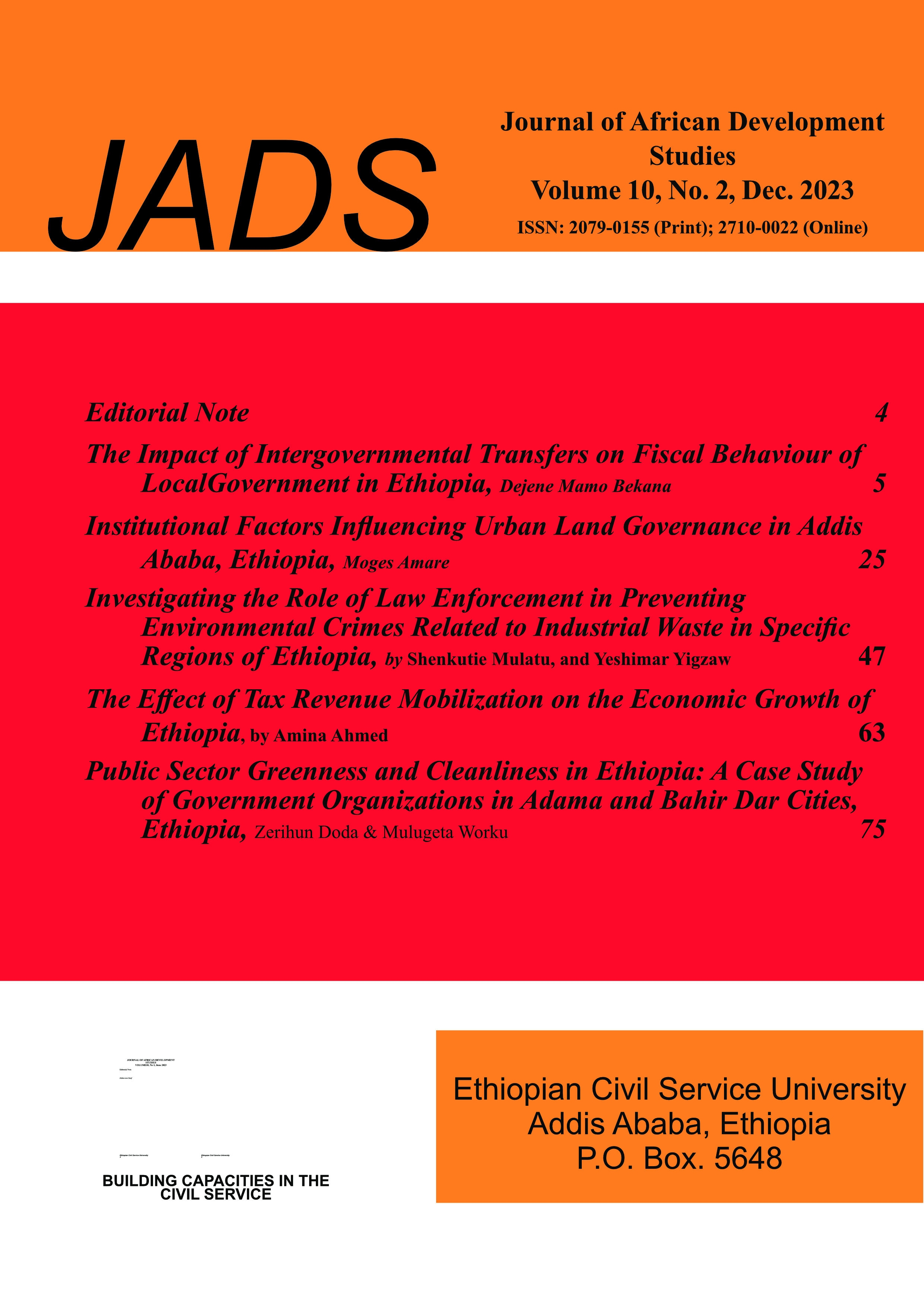The Impact of Intergovernmental Transfers on Fiscal Behaviour of Local Government in Ethiopia
DOI:
https://doi.org/10.56302/jads.v10i2.9695Keywords:
intergovernmental fiscal transfers; state fiscal behaviour; revenue; expenditure; state governments.Abstract
This paper examines the effect of intergovernmental fiscal transfers on the fiscal behaviour of local governments in Ethiopia for the period 2004-2018. The empirical findings suggest that central government grants bolster state-level employment and expenditure. However, grants from the central government to states do not crowd out state-level revenue collection. Hence, this paper argues that fiscal decentralisation in Ethiopia has mostly, at least in theory, taken the form of devolution of the power to tax and spend public money. However, on average state-level revenue can only finance up to 26 percent of their annual expenditure. As a result, fiscal federalism in Ethiopia appears to be a delegation of spending responsibilities. It must be considered in a decentralized tax system, but with a transfer scheme and political hierarchy. The results are robust to alternative econometric estimation techniques.

Downloads
Published
How to Cite
Issue
Section
License
Copyright (c) 2024 Journal of African Development Studies

This work is licensed under a Creative Commons Attribution-NonCommercial-ShareAlike 4.0 International License.




